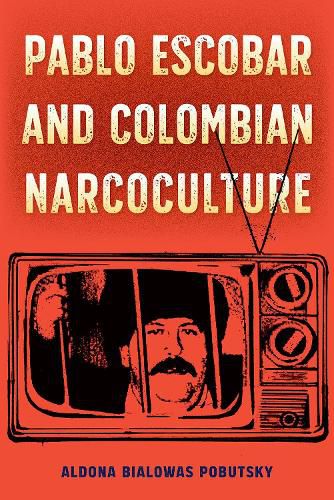Readings Newsletter
Become a Readings Member to make your shopping experience even easier.
Sign in or sign up for free!
You’re not far away from qualifying for FREE standard shipping within Australia
You’ve qualified for FREE standard shipping within Australia
The cart is loading…






This title is printed to order. This book may have been self-published. If so, we cannot guarantee the quality of the content. In the main most books will have gone through the editing process however some may not. We therefore suggest that you be aware of this before ordering this book. If in doubt check either the author or publisher’s details as we are unable to accept any returns unless they are faulty. Please contact us if you have any questions.
In the years since his death in 1993, Colombian drug lord Pablo Escobar has become a globally recognized symbol of crime, wealth, power, and masculinity. In this long-overdue exploration of Escobar’s impact on popular culture, Aldona Bialowas Pobutsky shows how his legacy inspired the development of narcoculture-television, music, literature, and fashion representing the drug-trafficking lifestyle-in Colombia and around the world.Pobutsky looks at the ways the Escobar brand surfaces in bars, restaurants, and clothing lines; in Colombia’s tourist industry; and in telenovelas, documentaries, and narco memoirs about his life, which in turn have generated popular interest in other drug traffickers such as Griselda Blanco and Miami’s cocaine cowboys. Pobutsky illustrates how the Colombian state strives to erase his memory while Escobar’s notoriety only continues to increase in popular culture through the transnational media. She argues that the image of Escobar is inextricably linked to Colombia’s internal tensions in the areas of cocaine politics, gender relations, class divisions, and political corruption and that his brand perpetuates the country’s reputation as a center of organized crime, to the dismay of the Colombian people. This book is a fascinating study of how the world perceives Colombia and how Colombia’s citizens understand their nation’s past and present.A volume in the series Reframing Media, Technology, and Culture in Latin/o America, edited by Hector Fernandez L'Hoeste and Juan Carlos Rodriguez
$9.00 standard shipping within Australia
FREE standard shipping within Australia for orders over $100.00
Express & International shipping calculated at checkout
This title is printed to order. This book may have been self-published. If so, we cannot guarantee the quality of the content. In the main most books will have gone through the editing process however some may not. We therefore suggest that you be aware of this before ordering this book. If in doubt check either the author or publisher’s details as we are unable to accept any returns unless they are faulty. Please contact us if you have any questions.
In the years since his death in 1993, Colombian drug lord Pablo Escobar has become a globally recognized symbol of crime, wealth, power, and masculinity. In this long-overdue exploration of Escobar’s impact on popular culture, Aldona Bialowas Pobutsky shows how his legacy inspired the development of narcoculture-television, music, literature, and fashion representing the drug-trafficking lifestyle-in Colombia and around the world.Pobutsky looks at the ways the Escobar brand surfaces in bars, restaurants, and clothing lines; in Colombia’s tourist industry; and in telenovelas, documentaries, and narco memoirs about his life, which in turn have generated popular interest in other drug traffickers such as Griselda Blanco and Miami’s cocaine cowboys. Pobutsky illustrates how the Colombian state strives to erase his memory while Escobar’s notoriety only continues to increase in popular culture through the transnational media. She argues that the image of Escobar is inextricably linked to Colombia’s internal tensions in the areas of cocaine politics, gender relations, class divisions, and political corruption and that his brand perpetuates the country’s reputation as a center of organized crime, to the dismay of the Colombian people. This book is a fascinating study of how the world perceives Colombia and how Colombia’s citizens understand their nation’s past and present.A volume in the series Reframing Media, Technology, and Culture in Latin/o America, edited by Hector Fernandez L'Hoeste and Juan Carlos Rodriguez